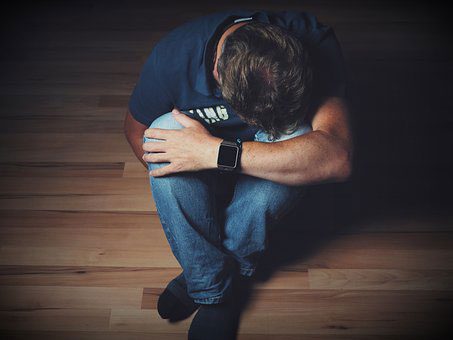What is Depression?
Are you feeling low and can’t seem to improve your mood? Is it difficult to know why you’re feeling so sad and how to feel better? If you’ve been experiencing low mood for a prolonged period of time and are struggling to find much happiness in life then it may well be that you are experiencing depression.

Here are some typical symptoms of depression:
- A lack of interest or struggling to gain any pleasure from day-to-day or usually enjoyable activities.
- Feeling very low or hopeless.
- Sleep disturbances – finding it hard to get to sleep and/or stay asleep, or alternatively sleeping too much.
- Experiencing more tiredness – a reduction in your usual energy levels.
- A change in appetite – either not wanting to eat much, or eating too much.
- Having negative thoughts about yourself, putting yourself down or feeling like you’ve failed yourself or others.
- Struggling to concentrate on typical activities like watching TV or reading a book.
- A noticeable change in the way you talk and move around – either being slower or alternatively being fidgety and restless.
- Thoughts of self-harm or suicide.
Depression can be either mild or severe – depending on how many of these symptoms you experience and how often. If you’re experiencing a number of these on a frequent basis to the point where you feel it’s affecting your ability to live life the way you want to, then it’s time to seek some help.
So what causes depression? – in some instances depression can be a reaction to difficult life experiences or events such as abuse, bullying, relationship problems, job loss, bereavement, severe illness etc. It could also be as a result of ongoing stress and anxiety, exhaustion, hormonal changes before and/or after giving birth. Other causes can be low self-esteem or a developed pessimistic worldview, loneliness, family history of depression, addictions or certain illnesses such as underactive thyroid or head injury. After reading this list it may be that you’re still unsure why you’re feeling so depressed, but talking therapies such as Counselling and Cognitive Behavioural Therapy can help you to explore and gain insight and understanding of what’s going on for you.
There are a lot of well-known celebrities – Pop stars, actors, authors, sports stars etc. who have struggled with depression such as: Katy Perry, Lady Gaga, Michael Phelps, Robin Williams, Bruce Springsteen, J.K. Rowling, Buzz Aldrin, Gwyneth Paltrow, Carrie Fisher, Stephen Fry – to name but a few. So it shows that fame and money don’t inoculate people from mental ill-health.
If there’s one message that I would dearly like to get across in this blog is that depression isn’t a choice – it’s not something you can suddenly decide not to feel anymore. If it were possible to ‘just snap out of it’ then it’s unlikely it was depression in the first place.
For some people the thought of reaching out for help can be hard – maybe you’ve been taught that it’s not OK to talk about your feelings, that people will judge you if you admit what you’re experiencing, ‘big boys/girls don’t cry’ or other people aren’t to be trusted. If that’s the case, please know that if you choose to come to see me – it’s absolutely OK to talk about how you’re feeling and there’s no judgement here – whatever you’d like to share with me is valid – please take a look at the (anonymous) feedback on my website pages that people have shared about their experiences of being in counselling with me. I also honour the trust you place in me – from your very first contact with me to the last – it is strictly confidential.
So how else can counselling help? – Along with providing a safe space to talk through your experience of depression and considering any possible causes, counselling can also help you to come to terms with the issues that have led to the depression and learn strategies for managing it, as well as uncovering the steps that can help you move towards the life you’d prefer to live.
If you’re feeling as though it’s time to reach out for some help then please feel free to get in touch. I understand from my own previous personal experiences with depression just how hard it can be to live with, but I also know the difference that counselling can make – (it’s what inspired me to become a counsellor myself). I’m here as and when you’re ready.
